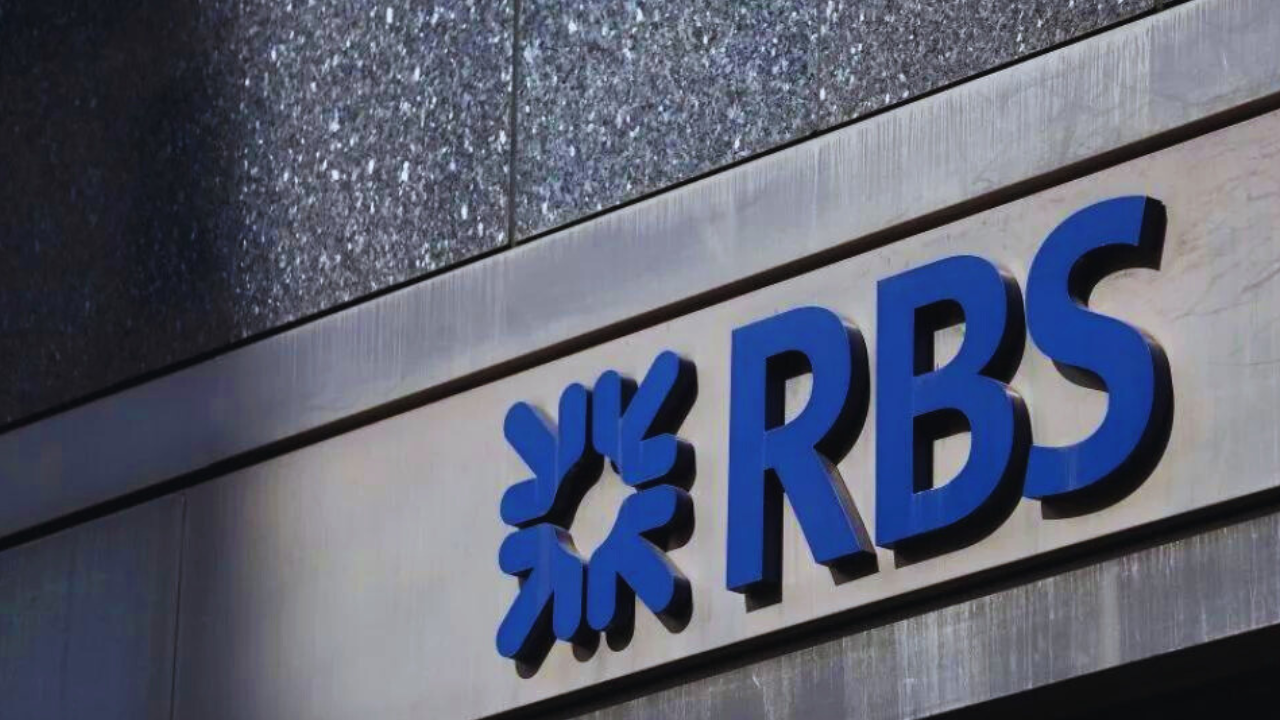the Royal Bank of Scotland Group
The Royal Bank of Scotland Group (RBS) stands as a prominent institution in the global banking industry, with a rich history dating back to its founding in 1727. Emerging from the early financial markets of Scotland, the Group has grown into a pivotal player in both domestic and international banking sectors. RBS has been instrumental in shaping the financial landscape through its innovative banking solutions and customer-centric approach.
Over the centuries, RBS has achieved numerous milestones that underscore its significance. One of its noteworthy achievements includes the establishment of the first overdraft facility, a groundbreaking financial service that revolutionized personal and business banking. In 1969, RBS merged with the National Commercial Bank of Scotland, a strategic move that bolstered its presence and capabilities. This merger marked a significant expansion, allowing RBS to offer a broader range of services to a more extensive customer base.
The early 21st century saw RBS making headlines with its acquisition of NatWest in 2000, one of the largest takeovers in the banking industry at the time. This acquisition not only expanded its market reach but also added significant value to its operational strengths. Despite facing challenges during the global financial crisis of 2008, RBS demonstrated resilience by undergoing substantial restructuring and focusing on core banking activities to stabilize and strengthen its financial position.
Today, the Royal Bank of Scotland Group is part of NatWest Group plc, reflecting its continued evolution and adaptability in a dynamic financial environment. RBS remains dedicated to delivering exceptional banking services, maintaining customer trust, and contributing to economic growth. Its historical legacy and commitment to innovation position it as a cornerstone institution within the financial sector, having navigated and shaped the banking industry over nearly three centuries.
Corporate Structure and Subsidiaries
The Royal Bank of Scotland Group (RBS) operates under a well-defined corporate structure, encompassing several key subsidiaries and divisions. Each entity within the group plays a distinct role, contributing to the overall functionality and success of the organization. The primary divisions include Personal & Business Banking, Commercial & Private Banking, and RBS International. These divisions are further supported by various subsidiaries, each focusing on specific market segments and services.
Personal & Business Banking (PBB) serves as the backbone of RBS’s retail banking operations, catering to individual customers and small businesses. This division includes the Royal Bank of Scotland and NatWest brands, both of which offer a wide range of financial services such as savings and checking accounts, mortgages, and personal loans. The emphasis on customer service and digital innovation has enabled PBB to maintain a strong market presence in the UK.
Commercial & Private Banking (CPB) is tailored towards larger enterprises and high-net-worth individuals. This division offers a suite of services including corporate lending, asset management, and investment advisory. Notable subsidiaries under CPB include Coutts & Co, a prestigious private bank known for its bespoke financial solutions, and Lombard, a leading provider of asset finance solutions. These subsidiaries enhance RBS’s ability to deliver specialized services to its diverse clientele.
RBS International (RBSI) focuses on offshore banking services, providing financial solutions to customers in jurisdictions outside the UK. This division operates through subsidiaries like NatWest International and Isle of Man Bank, offering a comprehensive range of products, including international savings accounts and foreign exchange services. The strategic positioning of RBSI enables the group to capture opportunities in the global market.
In recent years, RBS has undergone significant restructuring to streamline operations and enhance efficiency. The rebranding of RBS to NatWest Group in 2020 marked a pivotal shift, reflecting the group’s strategic focus on its core markets and customer-centric approach. This restructuring effort aimed to simplify the corporate structure, reduce costs, and drive sustainable growth.
Financial Performance and Market Position

The Royal Bank of Scotland Group (RBS) has demonstrated a resilient financial performance over recent years, despite the challenging economic landscape. A detailed examination of the bank’s revenue streams reveals a steady increase in income, driven by its diversified financial services. In 2022, RBS reported a total revenue of £10 billion, marking a 5% increase compared to the previous year. This growth is largely attributed to robust performance in its retail banking and commercial banking segments.
Profit margins have also shown significant improvement, with RBS achieving a net profit margin of 20% in 2022, up from 18% in 2021. This upward trend is a testament to the bank’s effective cost management strategies and its focus on enhancing operational efficiency. Key financial metrics, such as return on equity (ROE) and return on assets (ROA), have also shown positive trends. In 2022, RBS reported an ROE of 10%, while its ROA stood at 1.2%, both indicating a healthy financial standing.
In terms of market position, RBS holds a prominent place within the UK banking sector and has a growing footprint globally. The bank is one of the leading financial institutions in the UK, competing closely with other major players such as Barclays, HSBC, and Lloyds Banking Group. According to the latest market share data, RBS commands approximately 12% of the UK banking market, a notable share that highlights its competitive edge. Globally, RBS is expanding its presence, particularly in Europe and North America, where it continues to strengthen its market position through strategic alliances and acquisitions.
Recent financial reports underscore the bank’s robust performance. For instance, the first quarter of 2023 saw RBS report a net profit of £2.5 billion, surpassing analysts’ expectations. This strong performance is indicative of the bank’s solid financial foundation and its ability to navigate economic uncertainties. Looking ahead, financial forecasts for RBS remain optimistic, with analysts projecting continued revenue growth and stable profit margins, driven by the bank’s strategic initiatives and market expansion plans.
Products and Services Offered by RBS
The Royal Bank of Scotland (RBS) offers a diverse range of products and services tailored to meet the needs of individual and business customers alike. The bank’s personal banking services are designed to cater to the everyday financial needs of individuals, offering a variety of accounts including current accounts, savings accounts, and specialized accounts for students and young professionals. Additionally, RBS provides credit cards, personal loans, and mortgages, ensuring that customers have access to comprehensive financial solutions.
For business customers, RBS offers an extensive array of services aimed at supporting businesses of all sizes. These include business accounts, loans, and credit facilities, as well as specialized services such as merchant services and payment solutions. RBS also provides tailored advice and support through dedicated relationship managers, helping businesses navigate their financial journeys with expertise and confidence.
RBS’s wealth management services are another key component of its offerings, providing high-net-worth individuals with personalized investment advice and financial planning. The bank’s wealth management division offers services such as investment management, retirement planning, and estate planning, ensuring that clients can achieve their long-term financial goals. Additionally, RBS provides access to a range of investment products, including stocks, bonds, and mutual funds.
Insurance services are also a significant part of RBS’s portfolio, with a wide selection of insurance products designed to protect individuals and businesses. These include home insurance, car insurance, travel insurance, and life insurance, as well as specialized insurance products for businesses. RBS’s insurance offerings are characterized by their flexibility and comprehensive coverage, providing customers with peace of mind.
One of the unique aspects of RBS’s offerings is its commitment to innovation and digital banking solutions. The bank’s mobile app and online banking platform provide customers with convenient access to their accounts, enabling them to manage their finances on the go. Features such as real-time notifications, budgeting tools, and secure payment options set RBS apart from other banks, reflecting its dedication to enhancing the customer experience through technology.
Corporate Social Responsibility and Sustainability Initiatives

The Royal Bank of Scotland Group (RBS) showcases a profound commitment to corporate social responsibility (CSR) and sustainability, reflecting its dedication to fostering a positive impact on society and the environment. RBS’s CSR strategy is centered around three primary pillars: environmental sustainability, social equity, and ethical business practices.
Regarding environmental sustainability, RBS has implemented several key initiatives aimed at reducing its carbon footprint and promoting green practices. The bank has made significant investments in renewable energy projects and has set ambitious targets to achieve net-zero carbon emissions by 2050. Furthermore, RBS actively supports its clients in transitioning to sustainable business models through green financing solutions and advisory services.
In the realm of social equity, RBS is committed to fostering an inclusive and diverse workplace. The bank has introduced various programs to support gender equality, including initiatives to increase female representation in leadership roles. Additionally, RBS partners with numerous community organizations to address social issues such as financial literacy and economic empowerment. Through its charitable foundation, RBS funds numerous projects aimed at improving the quality of life in disadvantaged communities.
Ethical business practices are at the core of RBS’s operations. The bank adheres to stringent ethical standards and regulatory requirements to ensure transparency and accountability in all its dealings. RBS has established robust governance frameworks to oversee ethical conduct and has introduced comprehensive training programs to instill a culture of integrity among its employees.
RBS’s dedication to CSR and sustainability has not gone unnoticed. The bank has received numerous accolades for its efforts, including recognition in the Dow Jones Sustainability Index and awards for its leadership in green finance. These achievements underscore RBS’s position as a leader in promoting responsible business practices within the financial sector.
Technological Innovations and Digital Transformation
The Royal Bank of Scotland Group (RBS) has significantly invested in technological innovations and digital transformation to enhance its service offerings and maintain a competitive edge in the financial sector. The bank’s commitment to digital banking is evident through its robust online platforms and mobile applications, designed to offer a seamless and user-friendly experience for its customers.
RBS’s digital banking platforms provide a comprehensive suite of services that allow customers to manage their finances efficiently from any location. The bank’s mobile apps are particularly noteworthy, offering features such as real-time account monitoring, instant fund transfers, and an intuitive interface for bill payments. These applications are equipped with advanced security measures, including biometric authentication and encryption, ensuring that customer data remains secure and private.
One of the key technological advancements at RBS is the implementation of artificial intelligence (AI) and machine learning algorithms. These technologies are employed to personalize customer interactions and provide tailored financial advice. For instance, the AI-driven chatbots and virtual assistants on RBS’s platforms can handle a range of customer queries, from simple account inquiries to complex financial planning, thereby enhancing customer service and reducing response times.
Furthermore, the bank is leveraging big data analytics to gain insights into customer behavior and preferences. This data-driven approach allows RBS to develop targeted products and services, ensuring that their offerings align with the evolving needs of their clientele. The integration of predictive analytics also aids in risk management, helping the bank to identify potential fraud and mitigate financial risks proactively.
In addition to enhancing customer experience, RBS’s digital transformation initiatives are focused on improving operational efficiency. The adoption of cloud computing and automation technologies has streamlined internal processes, reducing operational costs and increasing productivity. These advancements enable RBS to allocate resources more effectively and deliver services with greater agility.
Overall, RBS’s strategic emphasis on technological innovation and digital transformation underscores its dedication to providing cutting-edge financial services. By continuously evolving its digital infrastructure, the bank not only meets the current demands of its customers but also positions itself for future growth in the rapidly changing financial landscape.
Challenges and Controversies
The Royal Bank of Scotland Group (RBS) has faced a series of significant challenges and controversies over the years, impacting both its reputation and operations. One of the most notable crises was the 2008 global financial crisis, during which RBS required a substantial bailout from the UK government. The bank’s aggressive expansion strategy and high-risk investments left it vulnerable, eventually necessitating a £45.5 billion rescue package, making it one of the largest bailouts in history. This financial turmoil led to substantial public and political scrutiny, severely tarnishing RBS’s reputation.
Legal issues have also plagued RBS, including allegations of mis-selling financial products. The bank faced numerous lawsuits and regulatory fines for mis-selling payment protection insurance (PPI) and mortgage-backed securities. These legal battles resulted in billions of pounds in fines and settlements, further straining the bank’s financial health and public image. Additionally, RBS was embroiled in the LIBOR scandal, where it was fined for manipulating benchmark interest rates, leading to significant regulatory penalties.
Public relations challenges have compounded these financial and legal issues. The perception of RBS as a bank that required taxpayer money to survive created a narrative of irresponsibility and mismanagement. Despite efforts to rebrand and restore public trust, the negative sentiment has been difficult to overcome. The bank has undertaken multiple initiatives to address these challenges, including restructuring its operations, cutting costs, and focusing on core markets. However, the long-term impact on its reputation remains a significant hurdle.
In addressing these controversies, RBS has also prioritized improving its compliance and risk management frameworks. Enhanced oversight and regulatory adherence have been central to its strategy to prevent future issues. While these measures have shown some positive results, the legacy of past controversies continues to influence public and stakeholder perceptions.
Future Outlook and Strategic Goals

The Royal Bank of Scotland Group (RBS) is strategically poised to navigate the evolving financial landscape with a comprehensive vision for future growth. As part of its forward-looking strategy, RBS aims to leverage digital transformation to enhance customer experience and operational efficiency. This includes investing in cutting-edge technology to streamline processes and introduce innovative financial products and services.
One of the primary strategic goals for RBS is market expansion, particularly in areas with significant growth potential. The bank is focused on broadening its footprint in both domestic and international markets by offering tailored solutions that meet the diverse needs of its clientele. This expansion effort is complemented by a commitment to sustainability and ethical banking practices, ensuring that growth is achieved responsibly.
Upcoming initiatives at RBS include bolstering its digital banking platforms to offer seamless, user-friendly experiences. The bank plans to introduce new digital tools that facilitate easier account management, quicker transactions, and enhanced security features. Additionally, RBS is exploring partnerships with fintech companies to integrate advanced technological solutions into its service offerings, further improving customer satisfaction.
Adapting to changing market conditions remains a crucial focus for RBS. The bank is actively monitoring economic trends and regulatory changes to stay ahead of potential challenges. This proactive approach enables RBS to make informed decisions that safeguard its financial health and ensure compliance with industry standards.
In terms of potential challenges, RBS acknowledges the competitive nature of the banking sector and the rapid pace of technological advancements. To address these challenges, the bank is investing in continuous employee training and development, ensuring that its workforce remains adept at utilizing new technologies and adhering to best practices.
Overall, RBS is dedicated to delivering sustained value to its stakeholders by pursuing strategic goals that align with market demands and fostering a culture of innovation and resilience. Through focused efforts on digital transformation, market expansion, and adaptive strategies, RBS is well-positioned to thrive in the dynamic financial environment.
FAQs
1. What is the Royal Bank of Scotland Group?
The Royal Bank of Scotland Group (RBS) is a major British banking and financial services company.
2. How does RBS support small businesses?
RBS offers business accounts, lending solutions, and advisory services to support small businesses.
3. What types of personal banking services does RBS offer?
RBS provides personal banking, mortgages, loans, and digital banking services.
4. How does RBS engage in corporate social responsibility?
RBS focuses on community development, financial education, and environmental sustainability through various CSR initiatives.
5. What is the future outlook for RBS?
RBS aims to continue its digital transformation and customer service enhancement, with steady growth predicted.







